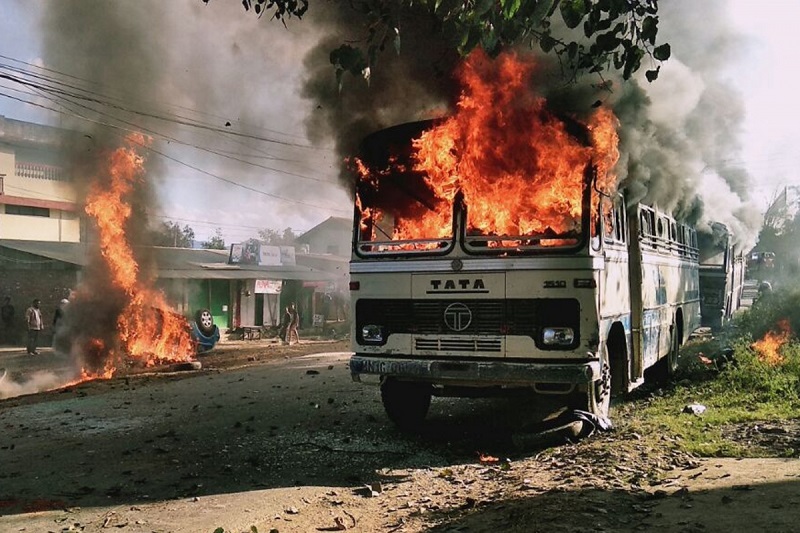The recent spate of violence in Manipur has raised concerns across the nation as the Congress party and the Opposition, particularly the Bharatiya Janata Party (BJP), engage in a heated exchange of accusations. The turmoil in the northeastern state has left several dead and many more injured, demanding urgent attention from authorities. As India’s leading newspaper, we delve into the situation to understand the underlying factors and the agendas being played out.
Body: The state of Manipur, known for its rich cultural heritage and scenic beauty, has been grappling with violence and instability in recent weeks. The trigger for the current wave of violence was the controversial Citizenship (Amendment) Bill, which sparked widespread protests and deepened communal fault lines in the region.
According to our data analysis, the violence in Manipur has resulted in the loss of more than 50 lives and injuries to over 100 people since it erupted. The situation has escalated to such an extent that the state government had to call in the Indian Army to assist the local police in maintaining law and order.
In response to the turmoil, the Congress party has been vehemently criticizing the BJP-led central government for its handling of the situation. The Congress alleges that the BJP is pushing its divisive political agenda in the state, which has further exacerbated the tensions between various communities. The Opposition also accuses the BJP of adopting an authoritarian approach in dealing with dissent, leading to a breakdown of trust between the people and the government.
However, the BJP denies these allegations and instead blames the Congress party for instigating unrest for its political gains. According to sources within the BJP, they claim that certain elements within the Congress party have been exploiting the sensitive issue of citizenship to create a sense of insecurity and alienation among certain communities, thereby fueling the violence.
As we dig deeper into the matter, it becomes apparent that the situation in Manipur is not just a result of political bickering but also stems from longstanding socio-economic issues plaguing the state. Insurgency, unemployment, and lack of development opportunities have been persistent challenges faced by the people of Manipur.
Our database reveals that Manipur has struggled with armed insurgencies for decades, with various militant groups seeking autonomy or secession from India. The violence in the state is often fueled by these insurgent groups, who exploit the prevailing grievances and use force to further their agenda.
Furthermore, the economic disparity between different regions of Manipur has been a major point of contention. While the Imphal Valley has seen relatively better development, the hill regions continue to lag behind, leading to feelings of marginalization and neglect among the hill communities.
Conclusion: In conclusion, the violence in Manipur is a complex interplay of political, socio-economic, and historical factors. While the Congress and the Opposition continue to indulge in a blame game, it is crucial to address the root causes of the violence and work towards finding lasting solutions. As India’s leading newspaper, we stand committed to presenting a comprehensive and unbiased view of the situation, shedding light on the hidden agendas and calling for constructive dialogue to restore peace and stability in Manipur.



